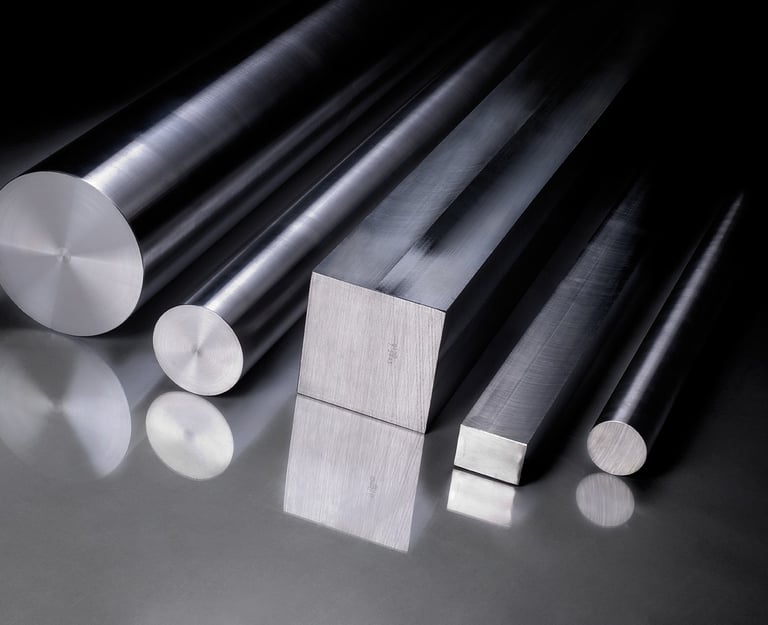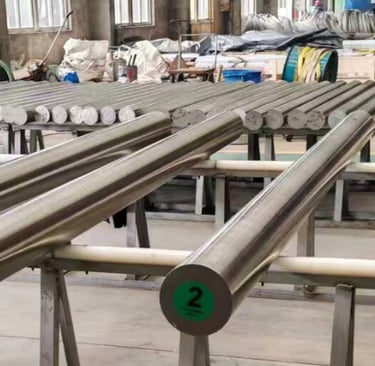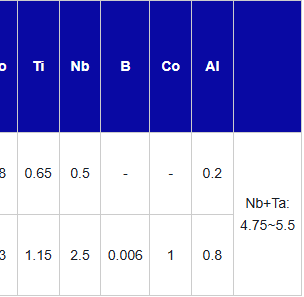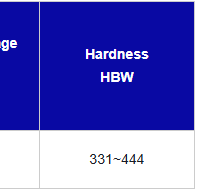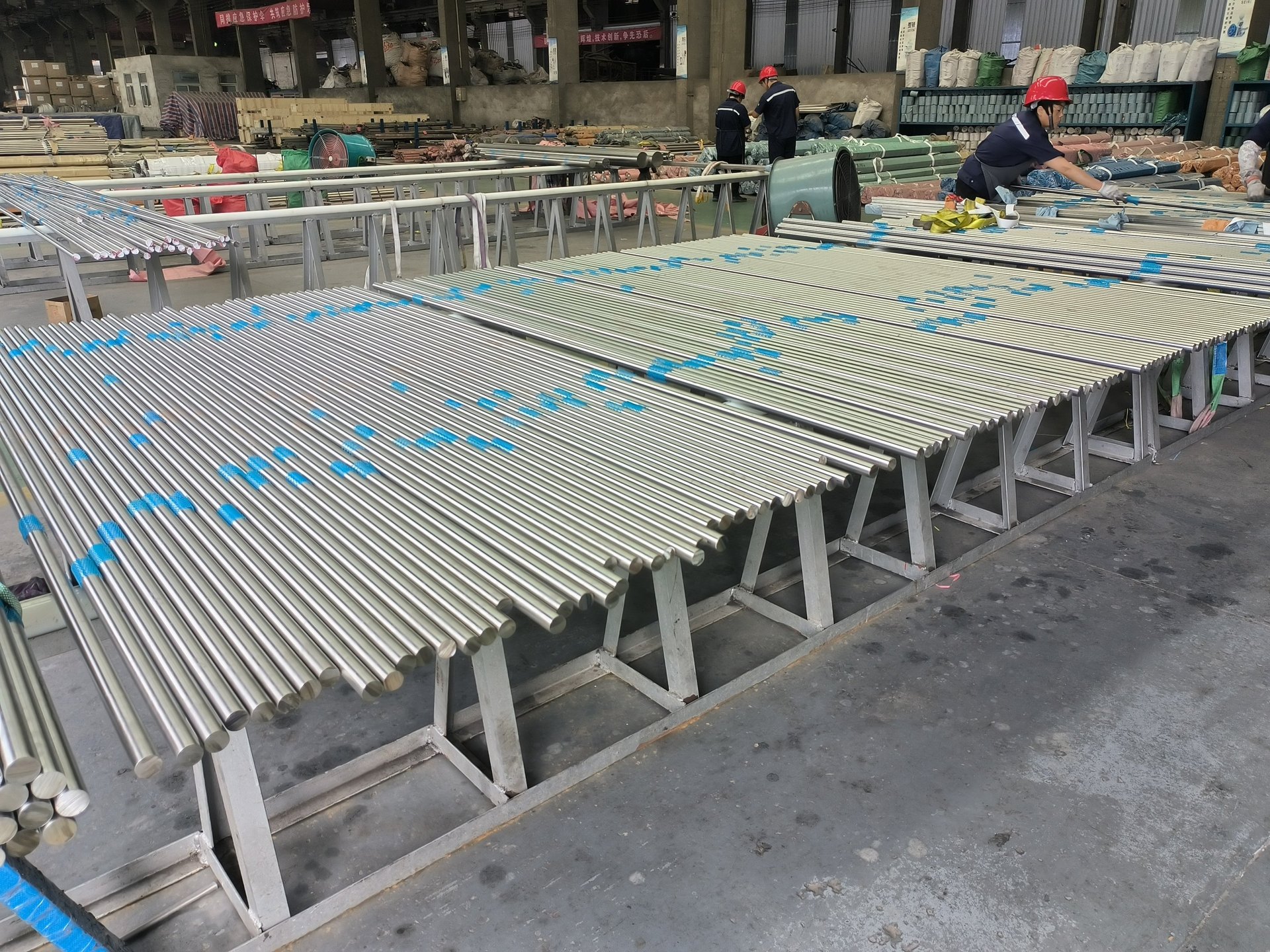
Product Description
PMI Inconel 718 Bar is a nickel-chromium-iron alloy with niobium and molybdenum, designed for high-temperature and highly corrosive environments. It conforms to ASTM B637 and AMS 5662 standards and exhibits high strength and good toughness below 650°C, along with excellent corrosion resistance in both high and low-temperature conditions. This alloy demonstrates outstanding mechanical properties and corrosion resistance, making it a critical material in important industries such as aerospace, petrochemical, nuclear energy, and marine engineering. Various heat treatment states are available, such as solution treatment or precipitation hardening, to meet the specific requirements of different applications.
Material Properties
High-Temperature Resistance and Strength: Inconel 718 maintains its strength at temperatures up to 700°C, exhibiting excellent creep and fatigue resistance, allowing it to remain stable under prolonged temperature fluctuations.
1. Corrosion Resistance: This material shows exceptional resistance to various corrosive media, such as oxidizing acids and chlorides, providing excellent durability in harsh environments.
2. Weldability: Inconel 718 has superior weldability, allowing for effective connections with other materials, making it suitable for the manufacture of complex structural components.
3. Heat Treatment Performance: The alloy can achieve the desired mechanical properties through heat treatment, and further optimization of the processing can enhance its characteristics.
Main Chemical Composition
- Nickel (Ni): 50.0% - 55.0%
- Chromium (Cr): 17.0% - 21.0%
- Iron (Fe): Balance
- Molybdenum (Mo): 2.8% - 3.3%
- Niobium (Nb): 0.5% - 2.5%
- Titanium (Ti): 0.65% - 1.15%
Mechanical Properties
Under standard heat treatment conditions, the mechanical properties of PMI Inconel 718 are:
- Tensile Strength: ≥ 1200 MPa
- Yield Strength: ≥ 1000 MPa
- Elongation: ≥ 12%
- Strain Rate: Up to 0.20%/1000h at high temperatures (at 650°C)
Physical Properties
- Density: Approximately 8.19 g/cm³
- Melting Point: 1260 - 1320°C
- Thermal Conductivity: 11.4 W/m·K
- Coefficient of Thermal Expansion: 13.0 x 10⁻⁶/K (from room temperature to 100°C)
- Electrical Resistivity: Approximately 6.9 μΩ·m
Key Properties
- Oxidation Resistance: Exhibits good oxidation resistance in high-temperature oxidizing atmospheres, making it suitable for gas turbine components in aircraft engines.
- Hydrogen Embrittlement Resistance: The material has good resistance to hydrogen embrittlement, reducing the risk of material failure in hydrogen environments.
- Good Machinability: Although Inconel 718 is relatively hard, it can still be machined using appropriate cutting and forming processes.
Packaging Information
- Packaging Method: The bars are packaged in moisture-proof and secure protective packaging, with inner packaging wrapped in plastic film and outer packaging in wooden boxes to ensure safety during transportation, complying with international shipping packaging requirements.
- Label Information: Each package is clearly labeled with product specifications, material, production batch number, and order number for easy identification and tracking by customers.
Product Applications
- Aerospace: Used in components such as jet engines and gas turbines, which endure extreme temperatures and pressures.
- Oil and Gas: Employed in the manufacture of high-temperature, high-pressure wellhead equipment and drilling tools; its corrosion resistance makes it suitable for chemical equipment, pump bodies, valves, etc., extending service life.
- Nuclear Energy: Applied in various components of nuclear reactors and their cooling systems.
- Marine Engineering: Ideal for constructing offshore oil and gas extraction platforms and related equipment, making it a preferred choice for power and structural components.
Best-Selling Specifications
In the aerospace and petrochemical sectors, the most popular specification for Inconel 718 bars is a diameter of 50mm and a length of 3m. Generally, bar diameters range from 20mm to 150mm, demonstrating excellent overall performance in the market. We support round bars, square bars, and custom shapes to meet specific customer and industry requirements.
Advantages and Disadvantages
Advantages:
-Compared to Inconel 625: Inconel 718 outperforms Inconel 625 in high-temperature performance and strength, making it suitable for higher temperature and load-bearing environments.
- Compared to Titanium Alloys: Inconel 718 offers better corrosion resistance and fatigue strength, making it suitable for more demanding applications.
Disadvantages:
- Higher Cost: The production cost of Inconel 718 is higher than many traditional materials, necessitating an assessment of economic feasibility.
- Machining Difficulty: Due to the high hardness of the alloy, appropriate tools and parameters must be selected for cutting and machining, increasing manufacturing complexity.
User Experiences
Salma D., Operations Manager, Mideast Oil Refinery (UAE)***
"We rely heavily on the mechanical properties of the Inconel alloy bars supplied by PMI Industry. In the corrosive environments typical of oil refining, their alloys perform exceptionally well, reducing downtime and maintenance costs. Their technical support throughout the procurement process is commendable."


